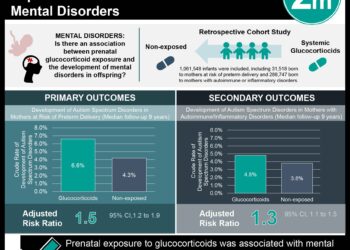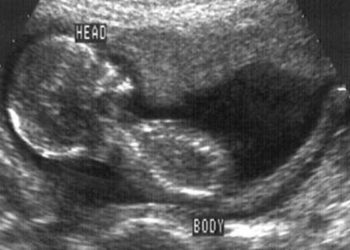Low birth weight children show neurobehavioral impairments
[tabs tab1=”2MM Rundown” tab2= “2MM Full Report”]
[tab]
Image: PD
1. Despite advances in obstetric and neonatal care, extremely preterm or extremely low birth weight children show continued neurobehavioral impairments at age 8.
2. Impairments were noted in general intellectual ability, academic skills, and behavioral outcomes, despite corrections for socioeconomic factors and neurosensory impairment.
Published today, an Australian study comparing extremely preterm (EP) or extremely low birth weight (ELBW) children to a cohort of term (T) or normal birth weight children (NBW) showed significant neurobehavioral impairments at age 8 in EP/ELBW children. Neurobehavioral impairments were noted in areas of intellectual ability, academic skills, and behavioral outcomes. Significant differences persisted despite correction for socioeconomic factors and neurosensory impairment. Limitations to this study include a difference in follow up rates between the EP/ELBW (94%) versus the T/NBW (87%) cohorts. Additionally, cohorts were enrolled at birth in 1997; it is unknown whether the advances in obstetric and neonatal care since then would yield better results.
Click to read the study, published today in Pediatrics
[/tab]
[tab]
Image: PD
1. Despite advances in obstetric and neonatal care, extremely preterm or extremely low birth weight children show continued neurobehavioral impairments at age 8.
2. Impairments were noted in general intellectual ability, academic skills, and behavioral outcomes, despite corrections for socioeconomic factors and neurosensory impairment.
This [prospective cohort] study enrolled 317 extremely preterm (EP, <28 weeks gestational age) or extremely low birth weight (ELBW, <1000 g) and 199 infants who were either term (T, <37 weeks) or had normal birth weight (NBW, <2500 g). Of the 317 EP/ELBW infants, only 201 survived to 2 years of age. The two cohorts were administered surveys on general intellectual ability, academic skills, and behavioral outcomes at age 8. Greater neurobehavioral impairments were seen in the EP/ELBW cohort (71%) in comparison to controls (42%); impairments were significant through all three domains. These impairments in the EP/ELBW cohort persisted despite corrections for socioeconomic status and neurosensory impairments (such as cerebral palsy, deafness, or blindness).
In sum: An Australian study comparing extremely preterm (EP) or extremely low birth weight (ELBW) children to a cohort of term (T) or normal birth weight children (NBW) showed significant neurobehavioral impairments at age 8 in EP/ELBW children. Neurobehavioral impairments were noted in areas of intellectual ability, academic skills, and behavioral outcomes. Significant differences persisted despite correction for socioeconomic factors and neurosensory impairment. Limitations to this study include a difference in follow up rates between the EP/ELBW (94%) versus the T/NBW (87%) cohorts. Additionally, cohorts were enrolled at birth in 1997; it is unknown whether the advances in obstetric and neonatal care since then would yield better results.
Click to read the study, published today in Pediatrics
By Neha Joshi and Devika Bhushan
More from this author: Study explores daily iron supplementation in 2- to 5-year-olds, New guidelines for pediatric acute otitis media released
© 2013 2minutemedicine.com. All rights reserved. No works may be reproduced without written consent from 2minutemedicine.com. Disclaimer: We present factual information directly from peer reviewed medical journals. No post should be construed as medical advice and is not intended as such by the authors or by 2minutemedicine.com. PLEASE SEE A HEALTHCARE PROVIDER IN YOUR AREA IF YOU SEEK MEDICAL ADVICE OF ANY SORT. Content is produced in accordance with fair use copyrights solely and strictly for the purpose of teaching, news and criticism. No benefit, monetary or otherwise, is realized by any participants or the owner of this domain.
[/tab]
[/tabs]








